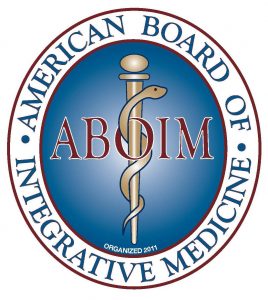Is Your Integrative Medicine Fellowship Program Approved?
 Integrative medicine is a healing-oriented medical specialty that focuses on the whole person, including all aspects of lifestyle. The integrative medicine practitioner makes decisions about illness prevention and treatment based on medical evidence and uses all appropriate therapeutic approaches, healthcare modalities, and disciplines to achieve optimal health and healing.
Integrative medicine is a healing-oriented medical specialty that focuses on the whole person, including all aspects of lifestyle. The integrative medicine practitioner makes decisions about illness prevention and treatment based on medical evidence and uses all appropriate therapeutic approaches, healthcare modalities, and disciplines to achieve optimal health and healing.
Fellowship Approval Enables Physicians to Apply for ABOIM Certification
In the United States, the American Board of Physician Specialties® (ABPS) is the only multi-specialty certifying board to offer integrative medicine board certification. Physicians who become certified through the American Board of Integrative Medicine® (ABOIM®), an ABPS Member Board, commit themselves to ongoing education and self-development and position themselves at the forefront of this evolving specialty.
To be eligible to apply for initial certification in integrative medicine, an applicant must first satisfy the general requirements of the ABPS, which include graduation from a recognized U.S., Canadian, or international allopathic or osteopathic college of medicine, and a valid and unrestricted license to practice medicine in the U.S., its territories, or Canada. In addition, an applicant must be an active integrative medicine specialist, and, as of January 1, 2023, all applicants must have completed an approved integrative medicine fellowship. Once certified by the ABOIM, physicians will have established themselves as leaders in integrative medicine. As Diplomates of the ABPS, a nationally recognized board, they will also have joined a community of physicians dedicated to advancing patient care while enjoying more career opportunities and increased mobility in the job market.
Advancing the Specialty: Integrative Medicine Fellowships & the ABOIM
Fellowship programs are integral to advancing the specialty, and as the field expands and deepens its critical role in mainstream healthcare, more educational programs at every level will be needed to meet the public’s interest and expectations.
In 2020, the Academic Consortium for Integrative Medicine and Health assumed the role of approving integrative medicine fellowship programs that meet the high standards of the ABPS. The organizational home for 76 of the world’s most prestigious academic health centers and health systems with integrative medicine programs, the consortium sets and monitors the educational standards for the nation’s integrative medicine fellowships. Currently, the ABOIM recognizes 18 programs in nine states, as well as Washington, D.C.
Each approved Fellowship program in Integrative Medicine provides a minimum of 1000 hours of graduate medical education. Physician faculty must have current certification in the specialty or possess qualifications judged acceptable to the Academic Consortium Fellowship Review Committee and faculty must pursue CME credit to remain current in their emerging fields, consistent with the ABOIM recertification requirements. A complete list of Fellowship Program Standards and a list of approved Fellowship Programs are available from the Academic Consortium.
ABPS Board Certification: A Mark of Distinction in the Medical Industry
ABPS boards, like the ABOIM, emphasize psychometrically evaluated testing in addition to advanced training, experience, and moral character. Our stringent requirements ensure that only the brightest and most dedicated physicians attain ABPS certification. Upon certification by the ABPS, they become part of a community of like-minded professionals nationally recognized for their achievements. ABPS-certified physicians work in esteemed institutions nationwide, spanning all 50 states, as well as Canada and Puerto Rico. As members of a distinguished community of medical professionals, ABPS Diplomates share clinical experiences and best practices, while also enjoying abundant leadership opportunities.
Questions? Want to discuss your program’s path to approval? Contact the ABPS today.






